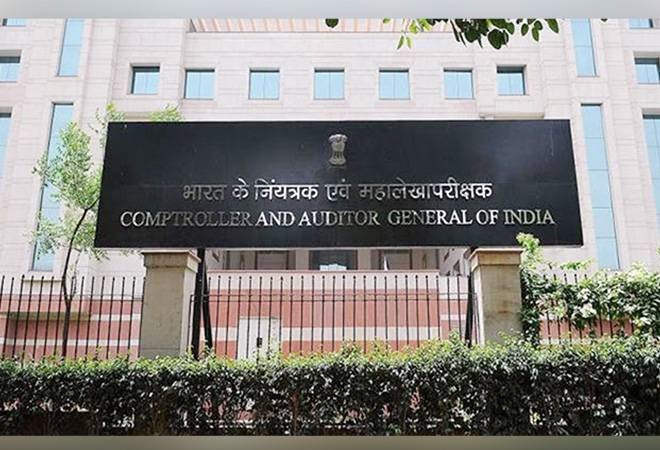
Comptroller
and Auditor General of India (CAG
Topics Discussed: -
·
Introduction
·
Comparison with UK
·
Provisions in Constitution
·
Independence of CAG
·
Functions and Powers of CAG
·
Introduction
Ø Comptroller and Auditor General of India is the apex authority
responsible for external and internal audits of the expenses of the National
and state governments. It is popularly known as the CAG of India.
Ø Part V of the Indian Constitution describes the role and
responsibilities of this office in Chapter V.
Ø The Comptroller and Auditor General is one of the few offices
directly appointed by the President of India.
·
Comparison
with UK
In
India the institution of CAG only audits the accounts after the expenditure is
committed. It does not have control over the withdrawal of money as in UK where
the name Comptroller is justified since no money can be drawn from the public
exchequer without the approval of the CAG.
·
Provisions
of Constitution related to CAG
Ø Art.
148: broadly
speaks of the CAG, his appointment, oath and conditions of service
Ø Art.
149: broadly
speaks of the Duties and Powers of the CAG
Ø Art.
150: The
accounts of the Union and of the States shall be kept in such form as the
President may, on the advice of the CAG, prescribe.
Ø Art.
151: Audit
Reports: The reports of the Comptroller and Auditor-General of India relating
to the accounts of the Union shall be submitted to the president, who shall
cause them to be laid before each House of Parliament.
The
reports of the Comptroller and Auditor-General of India relating to the
accounts of a State shall be submitted to the Governor of the State, who shall
cause them to be laid before the Legislature of the State.
·
Independence
of CAG
For
effective functioning of this important institution of the CAG it is paramount
to ensure independence. There are several provisions enshrined in the
Constitution to safeguard CAG’s independence.
Ø He is appointed by the President by a warrant under his hand and
seal and his oath of office requires him to uphold the Constitution of India
and the laws made there-under.
Ø He is provided with a security of tenure and can be removed by the
President only in accordance with the procedure mentioned in the Constitution
(same as a judge of SC).
Ø He is not eligible for further office, either under the Government
of India or of any state, after he ceases to hold his office.
Ø His salary and other service conditions though determined by the
Parliament cannot be varied to his disadvantage after appointment.
Ø His administrative powers and the conditions of service of persons
serving in the Indian Audit and Accounts Department shall be prescribed by the
President only after consulting him.
Ø The administrative expenses of the office of CAG, including all
salaries, allowances and pensions of persons serving in that office are charged
upon the Consolidated Fund of India and are not subject to the vote of
Parliament.
· Functions
and powers of CAG
CAG derives its audit mandate from
different sources like–
ü Constitution (Articles 148 to 151)
ü The Comptroller and Auditor General’s (Duties, Powers and
Conditions of Service) Act, 1971
ü Important Judgments
ü Instructions of Government of India
ü Regulations on Audit & Accounts-2007
Ø CAG audits the accounts related to all expenditure from the
Consolidated Fund of India, Consolidated Fund of each state and UT’s having a
legislative assembly.
Ø He audits all expenditure from the Contingency Fund of India and
the Public Account of India as well as the Contingency Fund and Public Account
of each state.
Ø He audits all trading, manufacturing, profit and loss accounts,
balance sheets and other subsidiary accounts kept by any department of the
Central Government and the state governments.
Ø He audits the receipts and expenditure of all bodies and
authorities substantially financed from the Central or State revenues;
government companies; other corporations and bodies, when so required by
related laws.
Ø He audits the accounts of any other authority when requested by
the President or Governor E.g. Local bodies.
Ø He advises the President with regard to prescription of the form
in which the accounts of the Centre and States shall be kept.
Ø He submits his audit reports relating to the accounts of the
Centre to the President, who shall, in turn, place them before both the houses
of Parliament.
Ø He submits his audit reports relating to the accounts of a State
to the Governor, who shall, in turn, place them before the state legislature.
Ø CAG also acts as a guide, friend and philosopher of the Public
Accounts Committee of the Parliament.
|
Don’t Miss -Important resources for
your dream - IAS Exam preparation |
|
Click here to practice UPSC CSE Prelims exam
- Previous Year Question Papers |
|
Click here to practice UPSC CSE Mains exam
–Previous Year Question Papers |
|
Click here to practice Optional Paper - Public administration- Question Papers |
|
Stay updated by Studying Daily Current
Affairs |
|
Don’t
forget to access valuable notes on telegram-click here to Join telegram |
|
Having
doubts while preparing? – Simply ask on WhatsApp “9717724350” |



Comments on “Comptroller and Auditor General of India (CAG)”